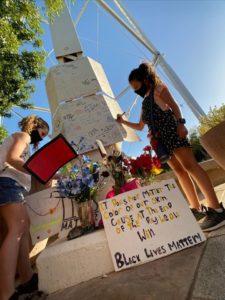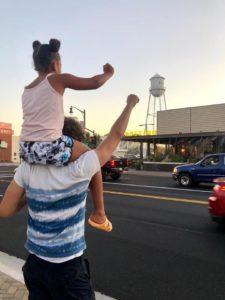By Recker McDowell —
The town of Gilbert and Gilbert Police are holding a series of ‘listening sessions’ with residents and business owners about race and policing.
The Chandler Chamber of Commerce will join the U.S. Chamber of Commerce as part of a national effort on the ‘inequality of opportunity’ and how to fix that.
These are good moves and every community as well as business groups should be doing the same and finding solutions related to racism, policing, and class divides.
 But we should all ask ourselves some tough questions about why it taking us until 2020 to find some real solutions, some real actions to dealing with not only racism and reforming police but also other issues such as disparities in health care magnified by COVID-19 and the historical mistreatments (putting it lightly) of Native Americans.
But we should all ask ourselves some tough questions about why it taking us until 2020 to find some real solutions, some real actions to dealing with not only racism and reforming police but also other issues such as disparities in health care magnified by COVID-19 and the historical mistreatments (putting it lightly) of Native Americans.
This is part of the boiling over frustrations of the George Floyd protests and now those centered on the Atlanta Police killing of Rayshard Brooks. Many of those in the streets have a sense of hopelessness and feel there has not been concrete changes even after past protests and riots (MLK in 1968, Rodney King in 1992) and the elections of Barack Obama in 2008 and 2012.
We have to put politics, social media, and reactions to the media aside and see that many of our neighbors are hurting. That should be our call here.
We need actions to make our country and communities a better place for everyone. At the root level, the key is for people to change their own hearts and to lose our biases and stereotypes. We do not need patronizing politicians and ads or media, sports, and Hollywood personalities’ lectures (even if they are well intended) for those changes. Change starts from within.
We need to come to grips with past transgressions including here in Arizona.
Then well intended and genuine efforts such as Gilbert’s listening sessions and those by the Chandler Chamber and other business groups can foster some real action and change for our communities and neighbors.
It is an opportunity for communities to turn all the talk into action and change.

